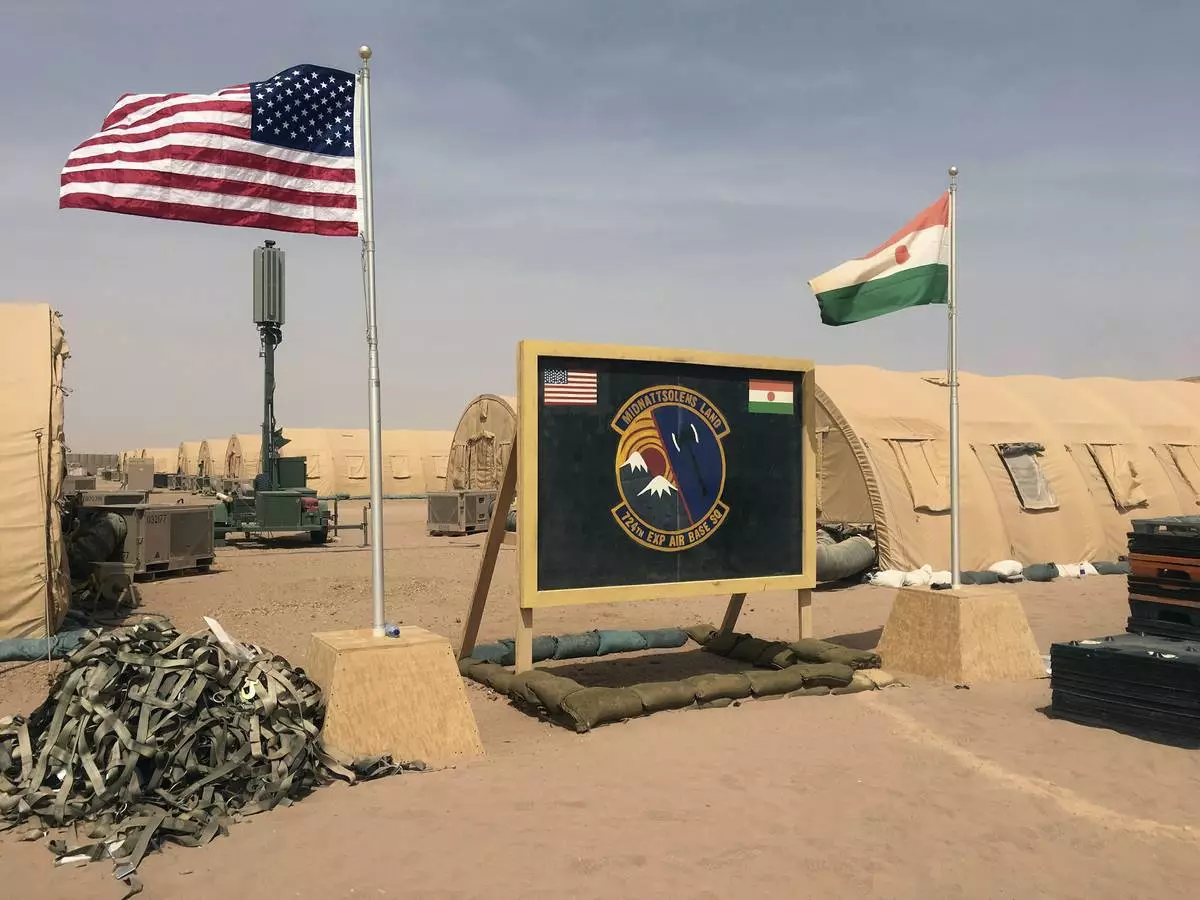The Federal Emergency Management Agency wrongly released to a contractor the personal information of 2.3 million survivors of devastating 2017 hurricanes and wildfires, potentially exposing the victims to identity fraud and theft, a government watchdog reported Friday.
Homeland Security Department's Office of Inspector General found the breach occurred when FEMA was working with a contractor that helps provide temporary housing to those affected by disasters. FEMA is one of Homeland Security's many agencies; the sprawling 240,000-person department also includes immigration enforcement, and the U.S. Secret Service.
FEMA officials agreed that changes needed to be made, and said they were working to change how they deliver data to avoid giving too much information and it will be completed by 2020.
Some information, like names, last four digits of a Social Security number and how many people live in a household are required to confirm eligibility and locate housing for victims. But FEMA also provided the contractor with bank names, electronic funds transfer numbers and bank transit numbers that were not required by the contractor.
The 2.3 million people lived through Hurricanes Harvey, Irma, Maria and California wildfires.
The watchdog said that FEMA violated both federal privacy laws and also Homeland Security policy by giving the extra data to the contractor, whose name was redacted in the report made public Friday.
The contractor also knew that FEMA was providing too much personal data but didn't inform the disaster relief agency.
The 2017 hurricane season was particularly brutal. Harvey slammed ashore in Texas on Aug. 25, 2017, as a powerful Category 4 storm. It killed 68 people and deluged much of the Houston metropolitan area — home to more than 6 million people — with 3 to 4 feet of water. Flooding damaged more than 300,000 structures and caused an estimated $125 billion in damage, according to a report from the National Hurricane Center . Irma struck Florida Sept. 10 and battered Georgia and North Carolina, killing 129 and devastating the Florida Keys. Maria made landfall Sept. 20, devastating Puerto Rico and plunging much of the island in darkness for months after, and left some 3,000 people dead.
Wildfires in California in 2017 burned some 1.2 million acres of land, destroyed more than 10,800 structures and killed at least 46, and insurance claims topped $3.3 billion.
Associated Press Writer Adam Causey in Oklahoma City contributed to this report.
WASHINGTON (AP) — The United States will pull the majority of its troops from Chad and Niger as it works to restore key agreements governing what role there might be there for the American military and its counterterrorism operations, the Pentagon said Thursday.
Both African countries have been integral to the U.S. military’s efforts to counter violent extremist organizations across the Sahel region, but Niger’s ruling junta ended an agreement last month that allows U.S. troops to operate in the West African country. In recent days, neighboring Chad also has questioned whether an existing agreement covered the U.S. troops operating there.
The U.S. will relocate most of the approximately 100 forces it has deployed in Chad for now, Pentagon press secretary Maj. Gen. Pat Ryder said Thursday at a press briefing.
“As talks continue with Chadian officials, U.S. AFRICOM is currently planning to reposition some U.S. military forces from Chad, some portions of which were already scheduled to depart. This is a temporary step as part of the ongoing review of our security cooperation, which will resume after Chad’s May 6th presidential election," Ryder said.
In Niger, the majority of the 1,000 U.S. personnel assigned there also are expected to depart, Ryder said.
U.S. and Nigerien officials were expected to meet Thursday in Niger's capital, Niamey, “to initiate discussions on an orderly and responsible withdrawal of U.S. forces," the State Department said in a statement late Wednesday. Follow-up meetings between senior Pentagon and Niger officials are expected next week “to coordinate the withdrawal process in a transparent manner and with mutual respect,” Ryder said.
Called status-of-forces agreements, these deals allow the U.S. to conduct critical counterterrorism operations within both countries' borders and have supported military partner training. The reversals have prompted concern that U.S. influence in Africa is losing ground to overtures from Russia and China.
Relations have frayed between Niger and Western countries since mutinous soldiers ousted the country’s democratically elected president in July. Niger’s junta has since told French forces to leave and turned instead to Russia for security.
Earlier this month, Russian military trainers arrived to reinforce the country’s air defenses and they brought Russian equipment, which they would train Nigeriens to use.
Niger plays a central role in the U.S. military’s operations in Africa’s Sahel region, a vast region south of the Sahara Desert. Washington is concerned about the spread of jihadi violence where local groups have pledged allegiance to al-Qaida and the Islamic State groups.
Niger is home to a major U.S. air base in the city of Agadez, about 920 kilometers (550 miles) from the capital, which is used for manned and unmanned surveillance flights and other operations. The U.S. also has invested hundreds of millions of dollars in training Niger’s military since beginning operations there in 2013.
Officials from the State Department, U.S. Africa Command and the Pentagon will work with Chad’s government to make the case for U.S. forces to continue operations, Joint Chiefs Vice Chairman Adm. Christopher Grady said Wednesday.
Grady told The Associated Press in an interview that if both countries ultimately decide the U.S. cannot remain, the military will have to look for alternatives to run counterterrorism missions across the Sahel.
“If we are asked to leave, and after negotiations that’s the way it plays out, then we are going to have to recalculate and figure out a new way to do it,” Grady said.
The news of the departure of U.S. forces in Chad was first reported by The New York Times.

FILE - Vice Chairman of the Joint Chiefs, Adm. Christopher Grady, right, arrives for a closed door briefing about the leaked highly classified military documents, on Capitol Hill, April 19, 2023, in Washington. Grady says there's been no final decision on whether or not all U.S. troops will leave Niger and Chad. (AP Photo/Alex Brandon, File)

US to pull troops from Chad and Niger as the African nations question its counterterrorism role

US to pull troops from Chad and Niger as the African nations question its counterterrorism role

FILE - A U.S. and Niger flag are raised side by side at the base camp for air forces and other personnel supporting the construction of Niger Air Base 201 in Agadez, Niger, April 16, 2018. The United States is attempting to create a new military agreement with Niger that would allow it to remain in the country, weeks after the junta said its presence was no longer justified, two Western officials told The Associated Press Friday April 19, 2024. (AP Photo/Carley Petesch, File)













